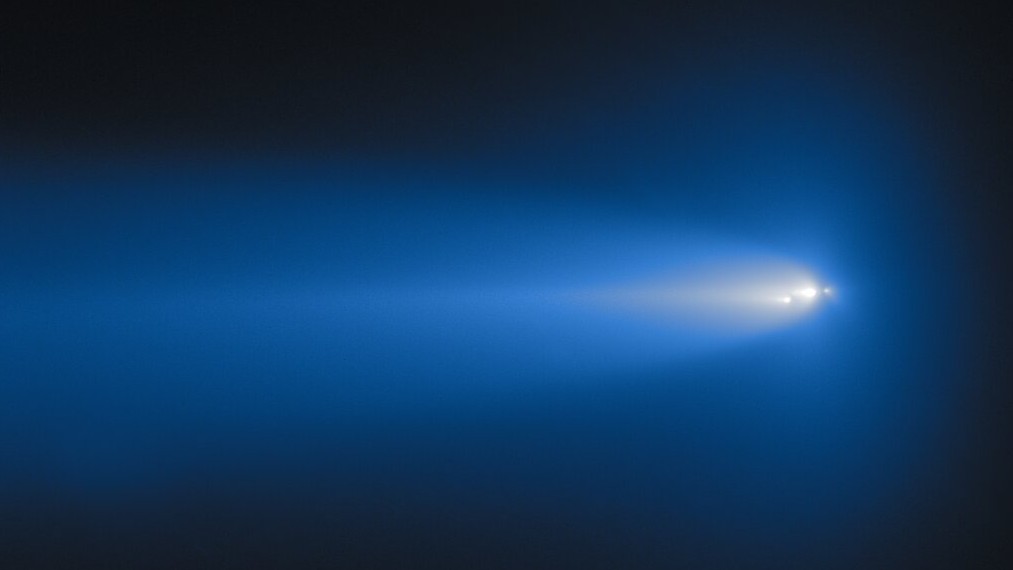
Pfizer starts COVID-19 vaccine trial in young kids
The company said that it had begun a small trial of its vaccine in children 6 months to 11 years old.

Get the world’s most fascinating discoveries delivered straight to your inbox.
You are now subscribed
Your newsletter sign-up was successful
Want to add more newsletters?

Delivered Daily
Daily Newsletter
Sign up for the latest discoveries, groundbreaking research and fascinating breakthroughs that impact you and the wider world direct to your inbox.

Once a week
Life's Little Mysteries
Feed your curiosity with an exclusive mystery every week, solved with science and delivered direct to your inbox before it's seen anywhere else.

Once a week
How It Works
Sign up to our free science & technology newsletter for your weekly fix of fascinating articles, quick quizzes, amazing images, and more

Delivered daily
Space.com Newsletter
Breaking space news, the latest updates on rocket launches, skywatching events and more!

Once a month
Watch This Space
Sign up to our monthly entertainment newsletter to keep up with all our coverage of the latest sci-fi and space movies, tv shows, games and books.

Once a week
Night Sky This Week
Discover this week's must-see night sky events, moon phases, and stunning astrophotos. Sign up for our skywatching newsletter and explore the universe with us!
Join the club
Get full access to premium articles, exclusive features and a growing list of member rewards.
Pfizer is testing its COVID-19 vaccine in children under age 12, according to news reports.
On Thursday (March 25), the company announced that it had begun a small trial of its vaccine in children 6 months to 11 years old, according to CNBC. Pfizer, which developed its shot in partnership with BioNTech, plans to enroll 144 kids in the Phase 1 trial, with the aim of finding the right dosage for kids of different ages.
The company hopes to have the results from this trial in the second half of 2021, and the vaccine could be authorized for kids under 12 by early 2022, according to The New York Times.
Pfizer's trial will test three different vaccine doses: 10, 20 and 30 micrograms per shot, according to the Times. (The Pfizer dose for adults is 30 micrograms per shot, according to CNBC.) The doses will first be tested in children ages 5 to 11, then 2 through 4 and finally 6 months to 2 years, the Times reported.
Once Pfizer determines the proper dose for each age group, the company will start a trial in 4,500 children; two-thirds will receive the real shot, and one-third will get a placebo. That trial will monitor children's immune response to the vaccine as well as look for side effects.
Earlier this month, Moderna announced it had started a trial of its COVID-19 vaccine in children ages 6 months to 11 years, Live Science previously reported. And Johnson & Johnson also plans to test its COVID-19 vaccine in kids and infants.
Both Pfizer and Moderna are already testing their shots in older children. (Pfizer has a trial in children ages 12 to 15 years, and Moderna has a trial in children ages 12 to 17.
Get the world’s most fascinating discoveries delivered straight to your inbox.
Recently, Dr. Anthony Fauci, director of the National Institute of Allergy and Infectious Diseases, said he projects that U.S. high school students could be vaccinated in the fall and elementary and middle school students in the first quarter of 2022, according to CNBC.
Originally published on Live Science.

Rachael is a Live Science contributor, and was a former channel editor and senior writer for Live Science between 2010 and 2022. She has a master's degree in journalism from New York University's Science, Health and Environmental Reporting Program. She also holds a B.S. in molecular biology and an M.S. in biology from the University of California, San Diego. Her work has appeared in Scienceline, The Washington Post and Scientific American.
 Live Science Plus
Live Science Plus










